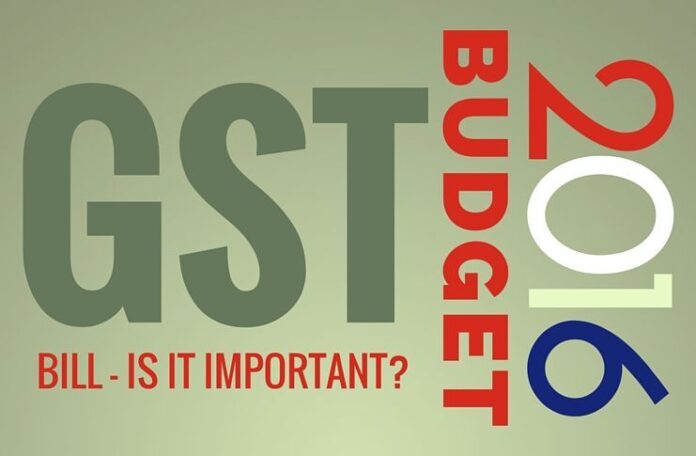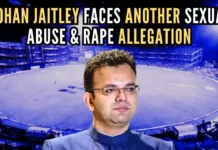
Is the GST Bill that important for India?
[dropcap color=”#008040″ boxed=”yes” boxed_radius=”8px” class=”” id=””]I[/dropcap]s it possible for India to survive without the GST Bill? “The belief that the GST Bill is the ultimate solution about financial reforms is a bogus statement,” says Dr Srinivasan Kalyanaraman, a former banker with the Asian Development Bank who has witnessed the growth and downfall of many an economy. He pointed out that instead of wasting precious time of the government, the finance minister should go for implementing the Govinda Rao committee report which suggested the merger of Central Excise and Services Taxes. “This could be distributed among the States as per the recommendations of the Financial Commission to the Government of India. The GST Bill is just a cover and all one has to do is to ignore it,” said Dr Kalyanaraman.
Dr Kalyanaraman, a PhD in public accounts, also wants the finance minister to simplify the tax regime. “Let’s have a single point tax system for the whole country”, he said.
The finance minister is also reported to have expressed his apprehensions about mobilisation of resources as he needs a lot of money for implementing the recommendations of the Seventh Pay Commission. India could be the biggest country in the world which has employed an army of civil servants. The politicians decide the quality of the government based on the number of people each government recruits to run government offices. The only beneficiaries in this process are the employees themselves because they get the best pay and perks for not doing any work. There is job guarantee, monthly pay packets and assured pension after the age of 60.
[dropcap color=”#008040″ boxed=”yes” boxed_radius=”8px” class=”” id=””]T[/dropcap]he union government can go on recruiting all the people in the country as government employees and pay them a consolidated monthly salary as it has the resources to do so without compromising on the security of the nation. The Kala Dhan or the black money kept in tax havens abroad is the solution for this problem. Why Indian money should be kept in foreign banks? It should be kept in Indian banks. This is one of the promises, made by the BJP and its star campaigner during the 2014 Lok Sabha elections. Though Modi did not boast that he would fill the bank accounts of the poor people with Rs 15 lakh each, he did assure that the black money stashed away in far off countries would be brought to India and used in the development process.
Ace lawyer Fali Nariman during his tenure as Rajya Sabha member had introduced a Private Member’s Bill for the restitution of the black money to India. It is self explanatory. Nariman’s proposal reads like this: “Steps should start with an enactment (maybe, an ordinance on the day the new Govt. assumes office) that all wealth held in foreign bank accounts, in excess of $100000 should be treated as nationalised and all the account holders’ money should be remitted to Reserve Bank of India with immediate effect thus bringing all these foreign currency monies into India’s financial system. The monies will be held in the accounts holders’ names and they will be given an opportunity to prove bona fide nature of the holdings”. .
Two steps to be initiated by the Government could resolve this issue permanently.
-
Issue an ordinance the way Indira Gandhi nationalised private banks in 1969.
-
All monies reverted to India’s financial system should belong to Indian citizens and the owners of the accounts would be given an opportunity to prove the bona fides of the holdings before further transactions are allowed in these accounts.
[dropcap color=”#008040″ boxed=”yes” boxed_radius=”8px” class=”” id=””]A[/dropcap] back of the paper calculation shows that a mind boggling $1.4 trillion is stashed away in foreign banks. “Bring it back to India and deploy the same in Mudra Scheme launched by the Prime Minister, the Make in India campaign and Insure the Farmers against crop failure . We can abolish the income tax altogether and earn the blessings of millions of poor people who have to pay the government a per cent from their hard earned savings.
The restitution of the Kala Dhan would also support the Swachh Bharat scheme of the Prime Minister, the National Water Grid and the project to Inter Link major Indian Rivers. This is the time to unleash the economic potential of the country. There is the law passed by the Swiss Federation namely Restitution /Repayment of illicit wealth. Politically exposed persons are defined under the United Nations Law. The government of India could enact a law and bring back the Kala Dhan stashed away in tax havens abroad”, opines Dr Kalyanaraman who has literally made this campaign his life’s mission.
Jaitley is presenting his third union budget and this could be the last but one chance he is getting to earn the goodwill of the public of the country. If he is going to declare a series of infrastructure projects and welfare schemes, he needs money. Instead of selling off the family silver (which is also known as shares of public sector enterprises) he can mobilise more resources by taking steps to bring black money stored in foreign countries. Jaitley’s time has come and it is time he performed.
Note:
1. The conversion rate used in this article is 1 USD = 68.63 Rupees.
2. Text in Blue points to additional data on the topic.
- Palaniswamy sworn in as TN CM amidst much drama - February 18, 2017
- How Vadaam Mami is thriving post-demonetization - February 18, 2017
- What are the credentials of Palanisamy? - February 15, 2017










